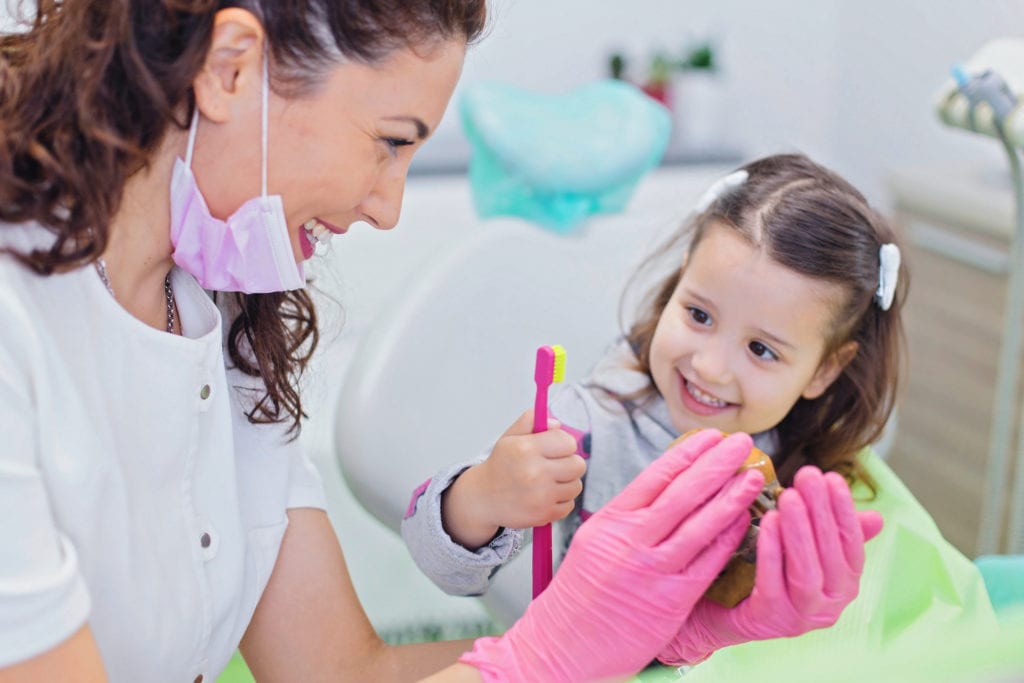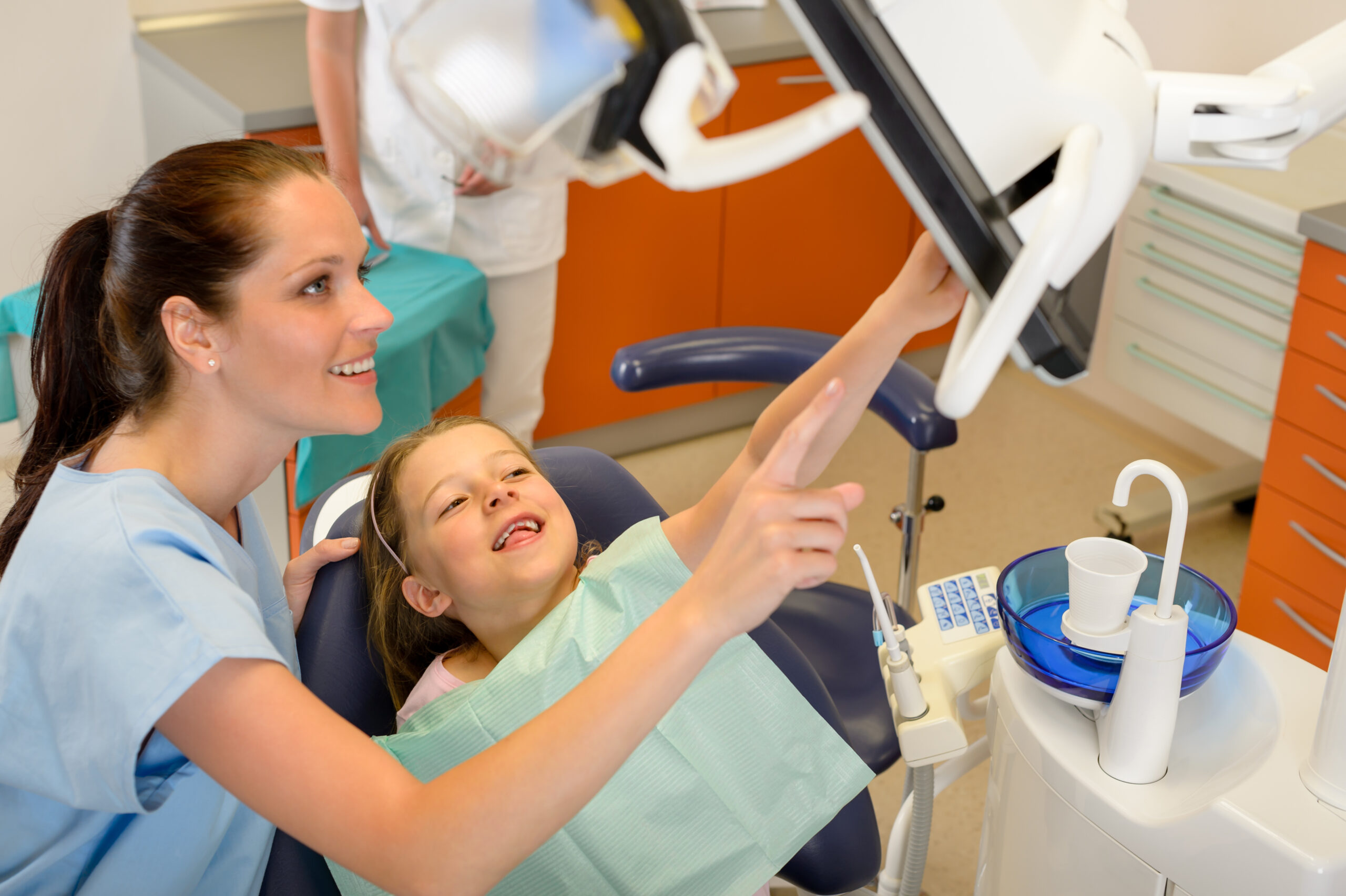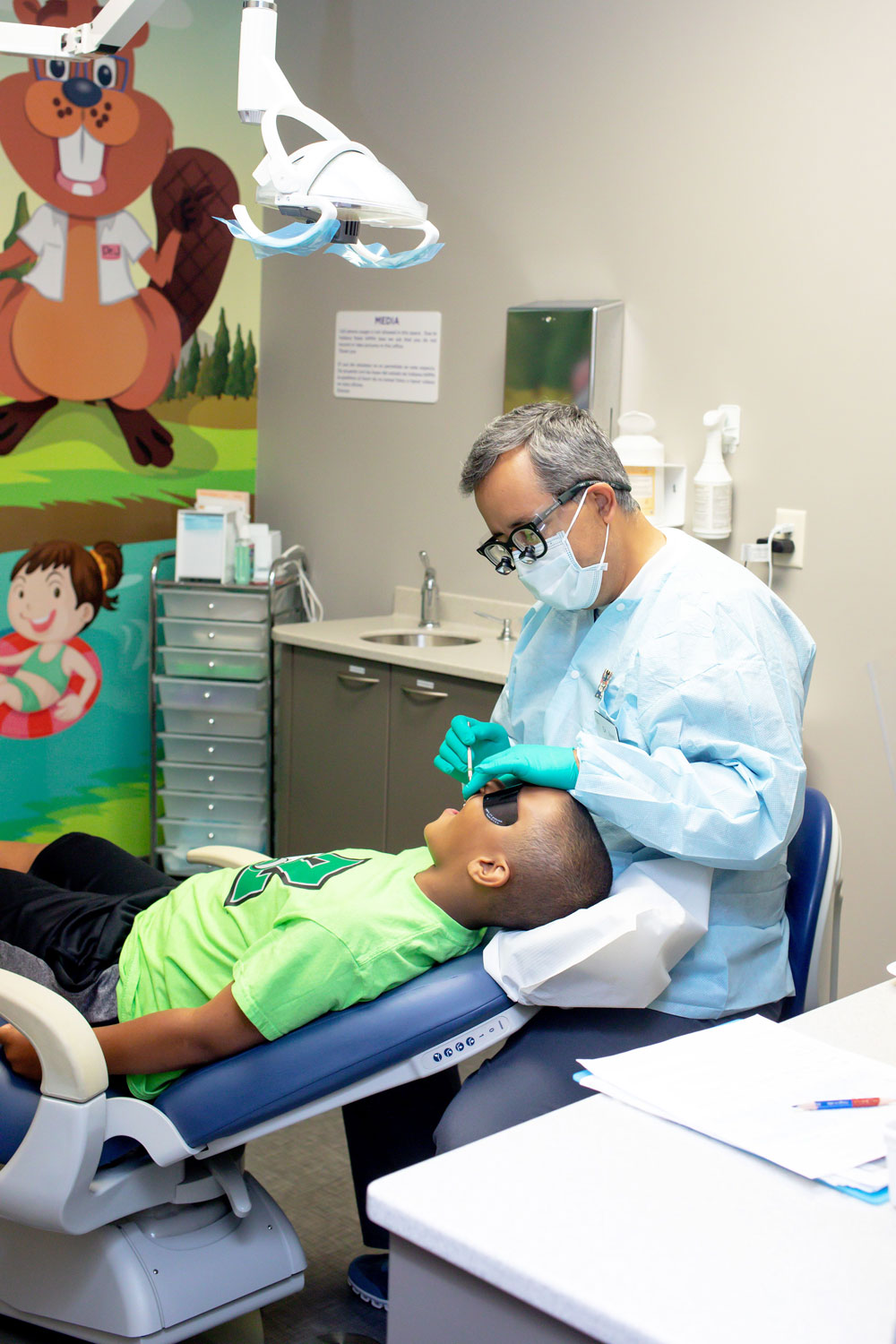A Comprehensive Overview to Pediatric Dental Care and Its Duty in Preventing Typical Dental Problems
Comprehending pediatric oral care is important for developing a foundation of lifelong oral wellness in youngsters. Early oral check outs, proper dental health methods, and dietary awareness are crucial elements that can dramatically mitigate the danger of common dental issues such as dental caries and malocclusion. By equipping both caretakers and youngsters with the required understanding and skills, we can promote healthy and balanced habits that advertise anxiety-free dental experiences. Yet, the concern continues to be: how can these techniques be successfully implemented to ensure long-term outcomes?
Value of Early Oral Brows Through
Identifying the value of very early dental visits can set the structure for a youngster's lifelong oral wellness. Developing a connection with a pediatric dental practitioner as early as the eruption of the very first tooth, commonly around six months of age, is necessary. These first gos to not only familiarize children with the oral atmosphere however also permit early detection of possible issues, such as misalignment or dental caries.
Early oral check-ups empower caretakers with valuable knowledge concerning appropriate oral treatment, nutritional suggestions, and the prevention of dental diseases. Pediatric dentists are skilled in resolving the special requirements of youngsters, ensuring that they receive age-appropriate education and learning on dental hygiene. In addition, these visits supply a chance to talk about practices such as thumb-sucking and pacifier use, which can influence dental growth.
Important Oral Hygiene Practices
Establishing a solid foundation for a youngster's oral wellness exceeds normal oral visits; it also involves instilling effective oral health methods from an early age. Moms and dads and caregivers play a vital duty in mentor children appropriate methods to maintain their oral health.

Flossing should begin when 2 teeth touch, as this protects against plaque buildup in hard-to-reach locations. Parents must help their children with cleaning and flossing up until they are about 7 or 8 years old to guarantee thoroughness.
In addition, developing normal dental exams every six months enables professional monitoring of oral wellness. Teaching youngsters the significance of oral health and making it a fun, interesting activity can promote long-lasting healthy behaviors that are vital in preventing typical dental troubles.

Role of Nourishment in Dental Wellness
Nutrition plays a pivotal duty in keeping optimum dental health and wellness, as the foods children take in can considerably impact the development and toughness of their teeth. A well-balanced diet plan abundant in essential nutrients is vital for developing strong enamel and sustaining overall dental health and wellness (kid dentist near me). Key nutrients, such as phosphorus, calcium, and more vitamin D, are important for the development of healthy teeth and bones. Foods like milk items, leafed environment-friendlies, and fortified cereals can boost calcium and phosphorus levels, while exposure to sunshine or dietary resources of vitamin D can boost calcium absorption.
Alternatively, a diet plan high in sugars and acids can lead to harmful effects on dental health. Sweet treats and drinks can foster the growth of harmful germs in the mouth, bring about enhanced acidity and a higher risk of dental cavity. It is necessary for caregivers to urge healthier snack alternatives, such as fruits, veggies, and entire grains, which not only give necessary nutrients however likewise promote saliva production, further safeguarding teeth.
Common Oral Problems in Kid
Dental health concerns are an usual worry for lots of moms and dads, as youngsters can experience a range of problems that might affect their oral wellness. One prevalent concern is dental caries, or tooth cavities, which emerge from the demineralization of tooth enamel because of acid-producing microorganisms. This condition is often exacerbated by poor nutritional practices, such as constant usage of sugary treats and beverages.
Another common problem is malocclusion, where teeth are misaligned, bring about problems in attacking, chewing, and speaking. This can result from hereditary factors or practices such as thumb sucking and extended pacifier usage. Furthermore, gingivitis, an early type of gum tissue condition, can happen in children, usually as a result of poor oral hygiene practices. It is characterized by red, swollen gum tissues that might bleed throughout brushing.
Tooth injuries, consisting of cracks or avulsions, are also constant among active kids. Routine dental examinations play a crucial role in detecting and attending to these typical oral issues properly.
Structure Lifelong Dental Behaviors
Instilling good oral health techniques early in life establishes the structure for a lifetime of healthy teeth and gum tissues. Establishing a constant regimen for brushing and flossing is essential; kids must brush their teeth two times a day with fluoride toothpaste and start flossing as quickly as two nearby teeth touch. Moms and dads play a vital function in modeling these behaviors, as youngsters usually copy adult practices.
Enlightening children concerning the value of oral care can even more find more information reinforce these habits. Use engaging approaches, such as tales or interactive video games, to aid them recognize why normal oral brows through and appropriate hygiene are crucial. In addition, introducing a well balanced diet plan low in sugar can dramatically decrease the threat of tooth cavities and promote dental health.
Routine oral exams, normally recommended every six months, give a chance for professional guidance and early discovery of potential issues. These brows through can also aid children develop a favorable organization with oral treatment. By fostering these routines and perspectives from a young age, moms and dads can equip their youngsters to take responsibility for their oral health and wellness, inevitably leading to a life time of certain smiles and decreased dental problems.
Final Thought

Early oral brows through, correct oral hygiene methods, and dietary understanding are vital components that can substantially alleviate the danger of typical oral troubles such as dental caries and malocclusion.Early dental examinations equip caregivers with valuable expertise relating to correct dental treatment, dietary referrals, and the prevention of oral conditions. Routine oral examinations play a vital function in finding and attending to these common oral issues properly.
Early dental gos to, along with the application of effective dental hygiene practices and correct nutrition, dramatically contribute to the prevention of typical dental issues such as dental caries and gingivitis. By instilling favorable oral practices from a very early age, kids are a lot more likely to experience healthy and balanced teeth and periodontals throughout their click for source lives, eventually cultivating a culture of oral health that can be maintained right into the adult years.